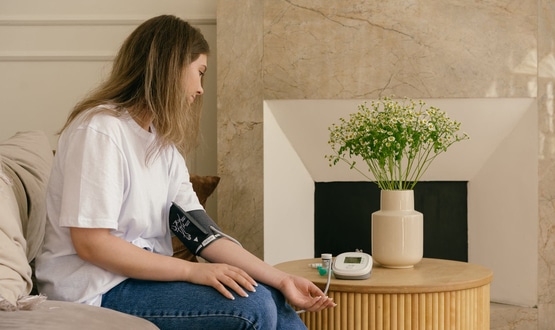NHS Leeds West CCG rolls out pain management app

NHS Leeds West Clinical Commissioning Group is offering patients a free app to help them manage their pain.
The app, PainSense, has been developed by the Saltaire firm ADI, and is based on a paper resource originally created by Dr Frances Cole, a pain rehabilitation specialist.
Patients with chronic pain are being encouraged by GPs and hospital pain clinics to download the app, which is available from both the Apple store and the Android store. The CCG has a pay-per-download arrangement with ADI.
Dr Jamie O’Shea, planned care clinical lead at the CCG, said that the redesign of the its chronic pain pathway came from a desire to embrace a more “holistic” model of pain management.
“Some of the pain relief medication that patients are prescribed has a lot of side effects, and can be quite dangerous if used in increasing doses. We felt that a community model with greater support for patients in pain management tools would be more helpful.”
Patients have been able to download the app since April last year. Since then, there have been 1,750 referrals to the app, and the number is growing by 350 each month.
Under the new pathway, some chronic pain patients are being referred to two community providers rather than to the hospital clinics. The providers, Spinefit and Pain Management Solutions, help patients with techniques for managing pain.
The app complements the work of the clinics. “A lot of it is focusing on questionnaires for patients to assess what's important to them, and what areas they are suffering with pain in,” said Dr O’Shea.
“In addition to having those self-assessment tools, the patient can record what happened on good days, so they can see what patterns might emerge. It has a number of videos as well and relaxation strategies that patients can use.”
Information from the app is integrated with the patient record systems used by GPs and community providers, so the clinician and patient can monitor progress together and review the strategies most likely to work.
Early outcome data for the new pathway has been positive. Demand for chronic pain services has increased, while the cost per patient for the initial assessment has reduced by 23%, from £131 in 2014-15 to £101 since the launch of the pathway.
The average cost per provider intervention has reduced from £674 per patient in 2014-15 to £575. It is too early to say, however, whether the pathway has had any impact on the prescription of opioids or GP attendance.
Dr O’Shea said that he thought the model could be extended to other condition, such as diabetes and heart disease. “If you can understand and monitor things for yourself, that is likely to improve your outcome.”
ADI plans to roll the app out across the UK in the next six months.




